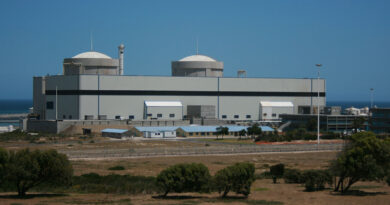High economic growth is a matter of choice not chance or destiny
Free economies do not come about by chance. They are the result of the conscious creation of a business environment that is conducive to a high level of entrepreneurial activity and that has a minimum of bureaucratic red tape. The key ingredients of economic freedomare: personal choice, voluntary exchange co-ordinated by markets, freedom to enter and compete in markets, and protection of persons and their property from aggression.
Liberty is the most important human right. This is borne out by the universal phenomenon that over the ages, people, irrespective of their nationalities, race or cultures, have always migrated from countries under oppressive regimes to countries where they can enjoy freedom. It is not surprising, therefore, that the freest countries attract the greatest numbers of refugees. In South Africa we see this unfolding. Freedom gives meaning to human existence; it is what we yearned for when we were under the yoke of apartheid. We wanted true liberty, not only civil liberty but economic liberty as well.
Abolition of apartheid increased South Africa’s economic freedom. After 30 years of an economy that was shrinking instead of growing – shrinking at an average rate of one per cent per annum over three decades – it started growing. This growth was to be expected; the repeal of the initiative-draining, racially based laws was equivalent to feeding the economy growth hormones.
Suddenly, for everyone, the barriers to advancement had been lifted. The shackles were off and we were free to do anything we liked. The days of entering through the back door and the ‘Slegs vir Blankes’ (whites only) signs could be forgotten. Besides the civil liberties that freed us from having to skulk around and constantly look over our shoulders that were important, it was the increased economic freedom that got the economy moving.
A pool of 44 million people could now fill positions previously reserved for 5 million. The sky was the limit for every child born in our free country. Of course we would prosper! How could we not if every person in the country could put her or his talents to the best possible use?
Sadly, this has not happened. While the world in general, including some of the previously most oppressed countries have gained economic freedom, South Africa is saying, ‘Stop the world, we want to get off!’ Our economic freedom ranking has declined and 46.6 per cent of the potential workforce is unemployed – this should be viewed as a national disaster and immediate action is needed.
How can the collectivists not know that when public enterprises run businesses, such as South African Airways and Eskom, it is bad for consumers, workers and the entire nation as taxpayers? Because state industries are incapable of competing on a level playing field, their political nannies protect them; they prohibit privately owned companies from competing with them, and constantly feed them with extra taxpayer cash even when no economic justification exists for doing so. The result is high prices, poor service, excessive taxes, and constant anxiety for workers.
Collectivists say state industries belong to the people, but they refuse to hand them over to these ‘owners’. Members of the FMF have long contended that giving ownership of public enterprises to the poorest people in the country would represent real empowerment. We suggested a ‘democracy dividend’ consisting of shares in the public enterprises, and more recently, transferring ownership of hospitals and clinics to the people who work in them, and where appropriate, to the members of the surrounding communities. Utilising the vast assets accumulated by the pre-democracy governments to remedy past wrongs is surely the best way to carry out empowerment without continuing to harm the economy for decades to come.
Why should South Africans be concerned that their country is achieving poorer ratings and slipping down the economic freedom rankings? For two reasons. The first is that South Africa is failing to meet the measures of human welfare which show that the citizens of economically freer countries are better off than those in less free countries. In freer economies, incomes are higher, economic growth is higher, there is less unemployment, life expectancy is greater, infant mortality is lower, there is less corruption, and the people have greater political rights and civil liberties. The second is that freer economies attract more investment capital, which is what we need to increase economic growth and improve the incomes of the poorest members of our society.
Collectivist claims that the ‘working class’ is better off in command economies with high levels of government ownership and control of economic activity are wrong; the truth is just the opposite as the figures clearly show. All anyone has to do is to visit the top ten free economies: Hong Kong, Singapore, New Zealand, Switzerland, Georgia, United States, Ireland, Lithuania, Australia and Denmark, to understand why they are more desirable places to live and work in than the bottom ten countries in the rankings: Central African Republic, Democratic Republic of Congo, Syria, Republic of Congo, Iran, Zimbabwe, Algeria, Libya, Sudan and lastly Venezuela.
The most important practical steps the South African government can take to substantially improve our level of economic freedom are:
- Reduce government involvement in the economy by disposing of public enterprises.
- Increase the ease of doing business by substantially reducing the burden of regulation – red tape.
- Simplify and reduce taxes.
- Stop the excessive increase in the money supply.
- Visibly reduce the crime rate.
- Abolish exchange controls.
- Remove the legislative measures that are causing high unemployment.
- Abolish all price controls.
- Further reduce tariff barriers.
Carrying out these reforms will make South Africa one of the freest economies in the world. It will also give us one of the highest growth rates. Government is free to choose – wealth-creation and peace through increased economic freedom is a simple matter of adopting policies that have proved to be highly effective wherever they have been implemented.




